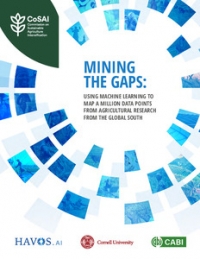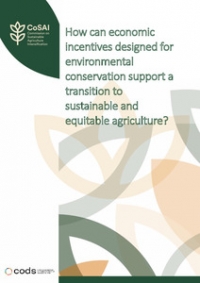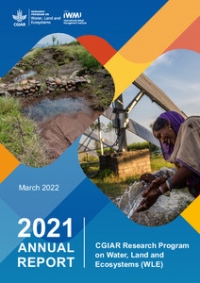Like many cities around the world, Quito, Ecuador, is confronting major challenges around providing healthy and nutrient-rich food for all. And the struggles are growing even more pronounced as the city faces the impacts of COVID-19.
But Quito has taken some major steps to diagnose its vulnerabilities and shape better policies and mechanisms. As a result, it has seen the launch of an innovative city-wide food policy, the creation of a participatory citizen platform, and the inclusion of food in the country’s climate action plan.
Quito’s long history of promoting urban and peri-urban food production began in 2002. Following a deep economic recession, 48 per cent of the city’s people were living below the poverty line. Quito’s Participatory Urban Agriculture Program (AGRUPAR) was launched, after a wide-ranging consultation, to encourage the production of healthy organic food from gardens in the city.
Today, AGRUPAR comprises 1,400 urban farms, occupying 42 hectares of land in urban, peri-urban and rural areas around the city. Located within areas most affected by poverty and chronic child malnutrition, it focuses on the most vulnerable in society, primarily women, the elderly and disabled people. The plots are tended by more than 4,500 farmers every year, mostly female heads of households. Produce is sold at local and regional bioferias – organic markets – around 900 of which take place each year.
Analyzing Quito’s food system
In 2016, Quito had joined the RUAF Global Partnership on sustainable urban agriculture and food systems, and signed the Milan Urban Food Policy Pact (MUFPP). Shortly after, it applied the FAO’s City Region Food System (CRFS) approach to test the resilience and sustainability of its food system and related policies. The CRFS assessment characterized Quito’s food production system as dependent, diverse and vulnerable.
It was deemed dependent because there was a large gap between what the city produced and what it consumed; diverse because food issues differed significantly across the territory; and vulnerable because of both natural risks (its food supply relied on two major routes through areas vulnerable to natural hazards) and anthropic threats (insufficient awareness, preparation and actions to reduce risk).
This led to the realization that Quito needed to develop a resilience strategy for its food system. Recognizing that this required careful thought and the development of appropriate policies, AGRUPAR facilitated a multi-stakeholder platform, the Quito Agri-Food Pact (PAQ). Its task was to devise and build an agri-food strategy that promoted positive change to the way food was processed, transported and consumed, as well as the way waste was handled. This work was conducted in 2018–19, with support from RUAF and the CGIAR Research Program on Water, Land and Ecosystems (WLE). Quito presented its agri-food strategy in April 2019, acknowledging the contributions of the PAQ.
Quito took a participatory approach to developing its agri-food strategy as it felt that inclusivity would help the program to be more sustainable in the long-term. This is because, unlike simple garden programs, the political debate around urban agriculture and how it should be managed goes beyond just agroecological production and sustainable consumption to incorporate issues such as social and economic inclusion.
Planning for the future
The agri-food strategy developed as a result of the CRFS assessment was included in the city’s groundbreaking Resilience Strategy and Vision 2040. Additionally, food has been integrated into the Quito Climate Action Plan for 2050. This connects the agri-food strategy with the global framework for sustainable development, which recognizes the right to food as a fundamental human right. It also links it to other related international agendas, such as the Paris Agreement and the Sendai Framework for Disaster Risk Reduction.
These actions demonstrate Quito’s commitment to providing an environment that is fair, safe, healthy, accessible, affordable, flexible and sustainable, and in which present and future inhabitants prosper. In extending the agri-food strategy beyond the urban sphere, Quito recognizes the city is part of larger systems, linked through land-use planning and territorial governance. In doing so, it seeks to promote the exchange of resources – including assets, people and knowledge – to prevent environmental depletion, encourage the use of renewable energy and improve the recovery of ecosystems.
Formulating Quito’s agri-food strategy promoted a high level of awareness and activation among actors within the agri-food system, and helped to define a common objective and vision. The development is ongoing, with efforts currently being made at political level to have the strategy recognized as a city ordinance (statute) and PAQ as a Food Policy Council. Meanwhile, information generated during the process of developing its agri-food system is informing the design of the Land Use and Development Plan of Quito. And with COVID-19 reshaping policies and practices, the work is now a vital part of finding strategies to protect local food supplies.




















